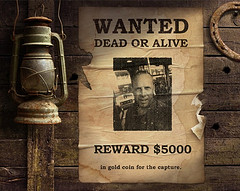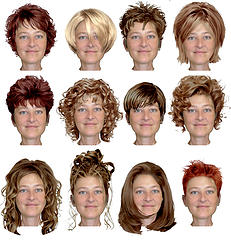Solved exercises
The main objective of these exercises is that you can recognize and identify the grammar points of this topic: the past perfect tense, conditional sentences type 3, present and past tenses of the passive voice, causative have form and question tags. Pay attention to the activities and you will understand easily, won't you?
1. Completed action before something in the past.
2. An action that is taking place at the moment.
3. An uncompleted action you are expecting.
4. Duration before something in the past.
5. With conditional sentences type III.
6. To express habits and daily routines.
1. Paco visits New York.
a. Paco has visited New York.
b. Paco had visiting New York.
c. Paco had visited New York.
2. It is very cold.
a. It had be very cold.
b. It had been very cold.
c. It was very cold.
3. Alex and Andrés play tennis.
a. Alex and Andrés had played tennis.
b. Alex and Andrés have played tennis.
c. Alex and Andrés had play tennis.
 |
| By 'MarS. Creative Commons. |
1. It is impossible that the condition will be fulfilled because it refers to the past.
2. It is possible and also very likely that the condition will be fulfilled.
3. It is possible but very unlikely that the condition will be fulfilled.
1. If I were you, I wouldn't buy that car. It's too expensive.
2. If you had studied harder, you would have passed the test.
3. Take the umbrella if it rains.
4. I will go to London with you if you come to the party with me.
5. I wouldn't have talked to him like that if he hadn't said it was my fault.
6. Would you mind if I opened the window? It's too hot in here.
7. If they had invited me to their party, I would have said no.
8. It will be easier for you to find a job if you speak English.
9. If I were not in a hurry, I would go with you to the supermarket.
 |
| By Ferdi's World. Creative Commons. |
1) A lot of people were rescued after the earthquake.
2) I left the keys inside the car.
3) The books are placed on the shelves.
4) The most important match of the season was lost.
5) They play tennis every weekend.
6) The thief was arrested by the Metropolitan Police.
7) The meal is prepared by a famous cook.
8) The librarian placed the books on the shelves.
9) My mother's town was destroyed in the war.
We use the causative have form:
1) When we ask somebody else to do something for us.
2) When we want somebody else to do something with us.
3) To show the idea that somebody convinces another person to do something.
4) When we do everything by ourselves without nobody's help.
 |
| By bunchofpants. Creative Commons. |
1) I'm going to have my hair cut.
2) Paco is having a good time in New York.
3) My father is having his car repaired in London.
4) Alex has got a good mark in the History exam.
5) Your grandfather should have his eyes checked soon. He can't see properly.
6) Paco will have his hair dyed shortly.
7) Isabel and Antonio had had their house rebuilt.
1) We use question tags at the end of statements to ask for confirmation.
2) We use question tags to force others to give an affirmative answer.
3) We use question tags because we don't know what to say to finish a sentence.
4) We use question tags in negative at the end of statements to ask for a polite request.
5) Question tags may be used for prohibitions.
1) You will help me with my homework, won't you?
2) It is raining, is it?
3) You haven't worked here before, have you?
4) My father shouldn't smoke so much, did he?
5) Paco's sister likes pasta a lot, doesn't she?
6) You don't like pizza at all, do you?
7) He was skiing when he fell down, didn't he?
8) Most of the students failed the exam, didn't they?
9) You wouldn't take these suitcases for me, would you?
10) Paco hadn't visited New York before, had he?